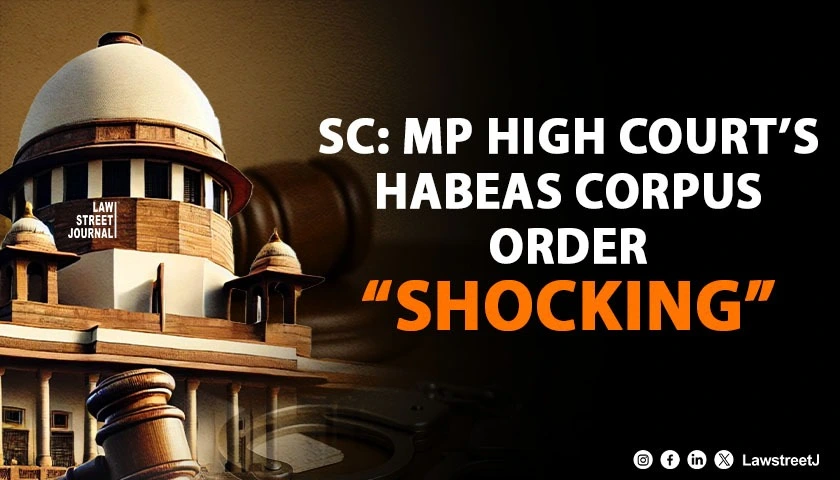New Delhi: The Supreme Court has set aside an order of the Madhya Pradesh High Court directing the release of an accused through a writ of habeas corpus, observing that the manner in which the jurisdiction was exercised was wholly impermissible in law.
A Bench of Justices Rajesh Bindal and Manmohan allowed the appeal filed by the State of Madhya Pradesh, noting that the High Court’s approach effectively bypassed the statutory process governing bail in criminal cases.
The matter arose from FIR No. 157 of 2021 registered at Police Station Bagsewaniya, Bhopal, for offences under Sections 420 and 409 of the IPC. The accused, Jibrakhan Lal Sahu, was arrested in December 2023, and a chargesheet was filed in February 2024. Over the next four months, he moved four separate bail applications before the High Court, each of which was dismissed—the last order being passed on 29 May 2024.
Thereafter, the accused’s daughter filed Writ Petition No. 24337 of 2024 seeking a writ of habeas corpus on the ground that her father’s custody was unlawful. Despite objections from the State regarding the maintainability of such a petition in the face of repeated bail rejections, the High Court, by order dated 3 October 2024, directed that the accused be released on furnishing a personal bond of ₹5,000 with one surety.
When the State challenged this decision, the Supreme Court noted that the manner in which habeas corpus jurisdiction was invoked “prima facie shocks our conscience.” The Court stayed the operation of the High Court’s order. It was later recorded that even after the stay, the accused did not surrender until directed to do so, ultimately appearing on 25 October 2025.
In its judgment, the Supreme Court observed that the High Court itself had noted the dismissal of four bail applications, yet proceeded to consider the merits of the criminal case within a habeas corpus petition. The Bench underlined that the proper remedy against rejection of bail lies in approaching a higher court, not in invoking habeas corpus to re-examine the merits of custody. The Court found that the High Court treated the petition almost as an appeal against the rejection of bail—an approach that was “totally without jurisdiction.”
The Bench recorded that the manner in which the High Court exercised its authority “really shocks the conscience of this Court,” emphasising that custody in a criminal case, pursuant to arrest and filing of chargesheet, cannot be labelled unlawful merely because bail has been repeatedly denied. The Court cautioned that permitting such a practice would undermine established safeguards and allow habeas corpus to be used as a substitute for statutory bail proceedings.
Allowing the appeal, the Supreme Court set aside the High Court’s order and clarified that if the accused files a fresh bail application, the same must be considered independently on its merits by the competent court.
Appearance: The appellants were represented by Mr. V.V.V. Pattabhiram, Deputy Advocate General, assisted by Ms. Mrinal Gopal Elker, AOR, and Mr. Amit Sharma, Advocate. The respondent was represented by Mr. Raghvendra Kumar, AOR, assisted by Mr. Devvrat Singh, Advocate.
Case Title: State of Madhya Pradesh & Ors. v. Kusum Sahu











